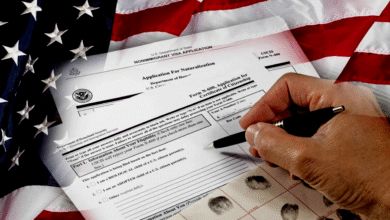HIPAA Violations in California: When Should You Talk to a Lawyer
HIPAA violations in California can lead to heavy fines. Learn when to consult a lawyer for investigations, breaches, or patient lawsuits.

HIPAA violations in California can have serious legal, financial, and professional consequences for healthcare providers, businesses, and individuals. The Health Insurance Portability and Accountability Act (HIPAA) sets strict standards for protecting patient health information, and failing to comply can result in hefty fines, lawsuits, and even criminal charges. If you suspect a HIPAA violation whether you’re a patient whose privacy was breached or a healthcare professional facing an allegation knowing when to consult a lawyer is crucial. This article explores common HIPAA violations in California, their legal implications, and the key situations where seeking legal counsel is essential.Help mitigate fines by demonstrating compliance efforts and negotiating corrective action plans. Manage breach notifications if patient data was exposed, ensuring timely reporting to authorities and affected individuals.
Understanding HIPAA compliance is vital in California’s highly regulated healthcare environment. From unauthorized disclosures of medical records to inadequate cybersecurity measures, even unintentional mistakes can lead to severe penalties. Patients have the right to pursue legal action if their privacy is violated, while healthcare entities must defend against complaints or government investigations. Below, we’ll examine real-world examples of HIPAA breaches, the enforcement process, and how an experienced attorney can help mitigate risks and protect your rights.
HIPAA Violations in California: When Should You Talk to a Lawyer?
Understanding HIPAA Violations in California
The Health Insurance Portability and Accountability Act (HIPAA) was enacted in 1996 to safeguard sensitive patient health information. In California, HIPAA works alongside state laws like the Confidentiality of Medical Information Act (CMIA) to ensure strict privacy protections. A HIPAA violation occurs when a covered entity such as a hospital, clinic, or health insurer or a business associate fails to protect patient data as required by law.
Common Types of HIPAA Violations
Unauthorized Disclosures & Security Failures
Unauthorized disclosures and security failures represent some of the most common HIPAA violations in California, carrying significant legal and financial consequences. Unauthorized PHI disclosures occur whenever patient information is shared without proper consent, whether through intentional acts like malicious data leaks or accidental mishaps such as sending sensitive information to the wrong email recipient or discussing patient details in public spaces like elevators or cafeterias. Even well-intentioned healthcare staff can inadvertently violate HIPAA by oversharing patient information on social media platforms or through casual conversations.
Patient Rights Violations & Negligent Handling of Records
Patient rights violations and negligent handling of medical records constitute serious HIPAA breaches that frequently lead to regulatory action and litigation in California. A common violation occurs when healthcare providers deny or unreasonably delay patients’ access to their medical records beyond HIPAA’s mandated 30-day response window, which can prompt lawsuits under both federal law and California’s stricter Confidentiality of Medical Information Act (CMIA). Equally problematic is improper disposal or storage of protected health information (PHI).
Legal Consequences of HIPAA Violations
The penalties for HIPAA violations vary based on severity and intent Civil Penalties: Fines range from 100to50,000 per violation, with an annual maximum of $1.5 million for repeated violations. Criminal Penalties: Willful violations can lead to fines up to $250,000 and imprisonment for up to 10 years. State Lawsuits: California allows patients to sue for damages under Confidentiality of Medical Information Act, with statutory penalties of 1,000to25,000 per violation. Reputational Damage: Healthcare providers may face loss of patient trust and professional licensure repercussions.
When Should You Talk to a Lawyer?
For Healthcare Providers & Organizations
If your practice is facing a HIPAA investigation by the Office for Civil Rights (OCR) or California Department of Public Health (CDPH), a lawyer can Guide your response to regulatory inquiries to avoid missteps that could worsen penalties. Strengthen compliance policies to prevent future violations through updated training, security measures, and vendor agreements. If a patient has sued you under HIPAA or California’s CMIA, an attorney can Challenge unsubstantiated claims and protect your practice from excessive damages. Negotiate settlements to resolve disputes efficiently while minimizing financial and reputational harm.
For Employees or Patients Affected by Violations
If you’re an employee accused of mishandling PHI, a lawyer can Defend against wrongful termination or excessive disciplinary action. Argue lack of intent if the violation was accidental (e.g., sending records to the wrong person). Ensure due process if your employer or a licensing board investigates. If you’re a patient whose privacy was violated, an attorney can File complaints with the OCR or California regulators to trigger investigations. Pursue a lawsuit under CMIA, which allows HIPAA Violations damages of 1,000–25,000 per violation. Seek compensation for harm caused by unauthorized disclosures (e.g., identity theft, emotional distress).
How a Lawyer Can Help with HIPAA Violations
Proactive Compliance & Risk Prevention
An experienced healthcare attorney can help organizations avoid violations before they occur by Conducting internal HIPAA audits to identify security gaps, improper record-handling, or staff training deficiencies. Drafting and reviewing Business Associate Agreements (BAAs) to ensure third-party vendors meet compliance standards. Developing breach response plans that outline proper notification procedures and mitigation strategies. Providing staff training programs on HIPAA requirements, cybersecurity best practices, and proper PHI handling. Implementing corrective action plans when potential violations are discovered to demonstrate good faith efforts.
Defense & Damage Control After Violations
When violations occur, legal counsel becomes critical for Representing clients in OCR/state investigations, including responding to subpoenas and negotiating penalty reductions. Managing mandatory breach notifications to patients, HHS, and (in California) the Attorney General within strict deadlines. Defending against patient lawsuits under HIPAA or California’s CMIA, which permits HIPAA Violations statutory damages.
Read More: The Impact of Automation on Labor: Challenges and Opportunities Ahead
Conclusion
HIPAA violations in California can have far-reaching consequences, making it crucial to seek legal counsel at the first sign of trouble. Whether you’re a healthcare provider facing an investigation, an employee accused of mishandling patient data, or a patient whose privacy rights were violated, an experienced attorney can help navigate the complexities of HIPAA compliance and defense. Early legal intervention can mean the difference between manageable corrective action and devastating fines, lawsuits, or even criminal charges. A skilled lawyer will assess your situation, guide you through regulatory requirements, and protect your rights while minimizing potential penalties.
When dealing with HIPAA violations in California, time is of the essence delaying legal consultation could worsen the situation. A knowledgeable healthcare attorney can assist with breach notifications, represent you in government audits, and defend against civil lawsuits. For healthcare providers, proactive legal advice can also prevent future violations by ensuring proper compliance protocols. If you suspect a HIPAA-related issue, don’t wait for regulators or plaintiffs to take action. Consulting a lawyer early ensures you have the best possible strategy to resolve the matter efficiently and safeguard your professional and financial future.
FAQs
What is the most common HIPAA violation in California?
Unauthorized disclosure of patient records, such as sharing information without consent, is among the most frequent violations.
Can patients sue for HIPAA violations in California?
Yes, under California’s CMIA, patients can file lawsuits for damages if their HIPAA Violations privacy is breached.
What should I do if my healthcare practice is investigated for a HIPAA violation?
Contact a healthcare attorney immediately to handle communications with regulators and develop a compliance strategy.
Are there criminal penalties for HIPAA violations?
Yes, intentional violations can result in fines up to $250,000 and prison sentences of up to 10 years.
How can healthcare providers prevent HIPAA violations?
Implement strong cybersecurity measures, train staff regularly, and ensure all third-party vendors sign Business Associate Agreements.











